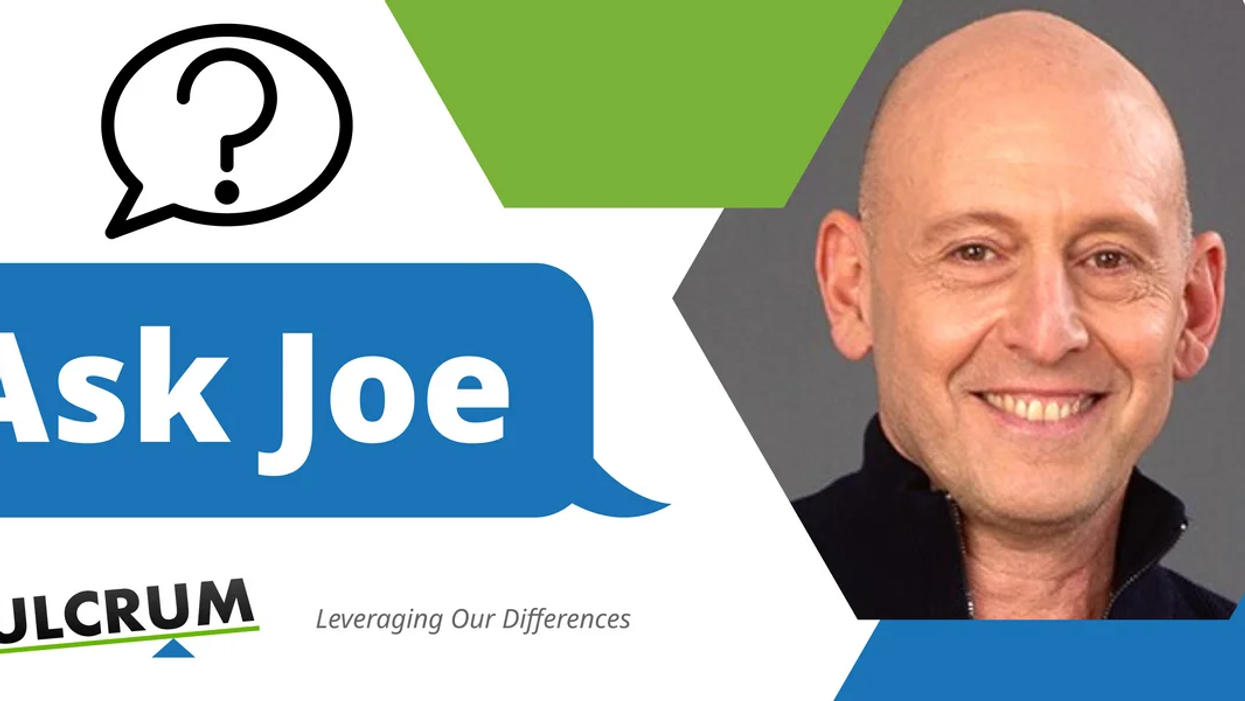Joe’s upcoming book, Fierce Civility: Transforming our Global Culture from Polarization to Lasting Peace, will launch on March 9, 2023. Stay tuned for more details.
Hi Joe,
I thought the question in the last article from Skeptical was interesting, but not what I have a problem with. I have so many people that I need to talk to about things that bother me but I wouldn’t think of doing it because I don’t want to make them mad. There are already so many angry people, why make it worse?
Let’s Chill
Hey Chill,
Interesting point. It’s great if your first impulse is to want to keep peace and avoid conflict. Don’t let that go. But not speaking your truth, when necessary, can cause you harm, harm to others, and even harm to the person you need to confront. Imagine seeing an injustice happening to someone else, and you say nothing. Imagine the amount of resentment that builds up when you don’t let people know how they are impacting you. This leads to creating mistrust and separation in your relationships, where we then tend to consciously or unintentionally harm each other. So, while we may avoid the short-term uncomfortable situations, we end up potentially creating more suffering.
I would like to share a story that happened to me:
Many years ago, when I was living in Holland, we had a circle of friends. We were very close. Suddenly one friend was not very present and when he was with us, he was not really himself. He kept asking us to lend him money. It became clear to the rest of us that he was using the money for his drug habit.
Because we all suffered from what I call “chronic niceness,” we kept giving him money (he was very persuasive). But we also noticed that we were losing him, also that we were all carrying a big amount of resentment, pain, fear and anger. Perfect Respectful Confrontation definition of Conflict.
But I felt like something needed to be done. Because I am usually the one who speaks out loud “what no one wants to talk about,” I decided to “confront” him. I did it with empathy and love, but also with firmness and setting of clear boundaries. I told him that I wasn’t going to give him money anymore.
This caused him to lash out and get aggressive. He refused to see me again and turned a few of our friends against me. This, of course, broke my heart. I doubted myself, and at times wished I didn’t confront him. But I also was able to stand strong in my conviction that my intention was to empower all of us. I didn’t judge him; I simply expressed my fear and concerns for his wellbeing and my desire to bring us all closer together. THAT reminder to myself was all I had to stay strong in my decision.
Then about 5 years later at a party, I ran into this friend. This was the first time we saw each other since that time and he looked good. After a lot of small talk, he shared with me that it was my conversation with him that helped him see how lost he was in the drugs and eventually chose to seek out help. He expressed his gratitude.
Not all situations will end this way, but it illustrates for me the importance of using both fierceness and civility to get to the root cause of our personal and societal problems in order to come to some kind of healing, reconciliation, common ground and the emergence of new solutions. At the moment, former president Jimmy Carter is on my mind and doing prayers for him and his family at this significant time in his life. I would like to share with you a quote of his that has inspired me for many years: “If you fear making anyone mad, then you ultimately probe for the lowest common denominator of human achievement.”
So, Chill, I invite you to consider that having those very uncomfortable conversations, with skill, compassion, courage and patience, are necessary for us to help each other become the best that we can be.
Learn more about Joe Weston and his work here. Make sure to c heck out Joe’s bestselling book Fierce Civility: Transforming our Global Culture from Polarization to Lasting Peace, published March 2023.
Have a question for Joe? Send an email to AskJoe@fulcrum.us.




















